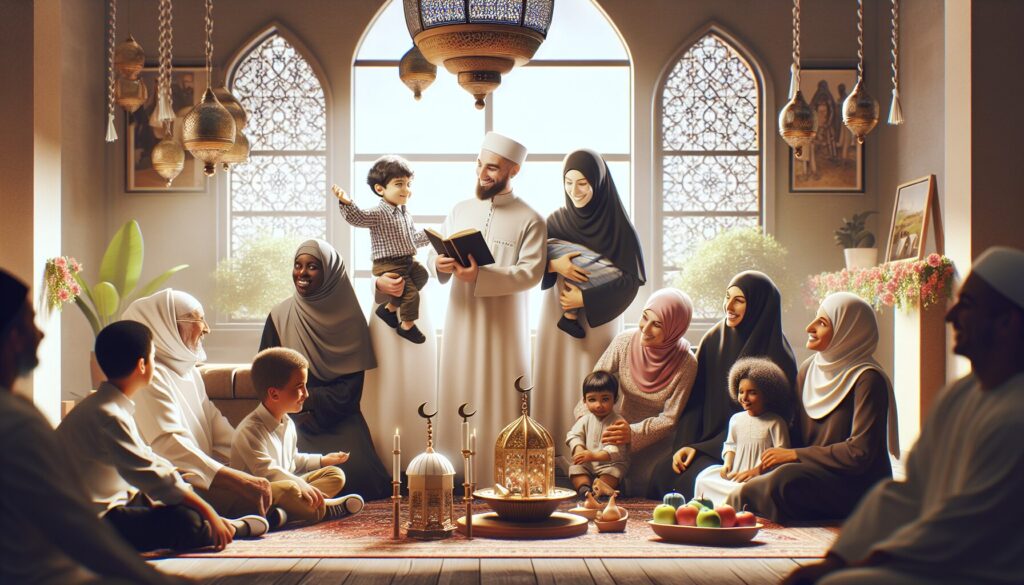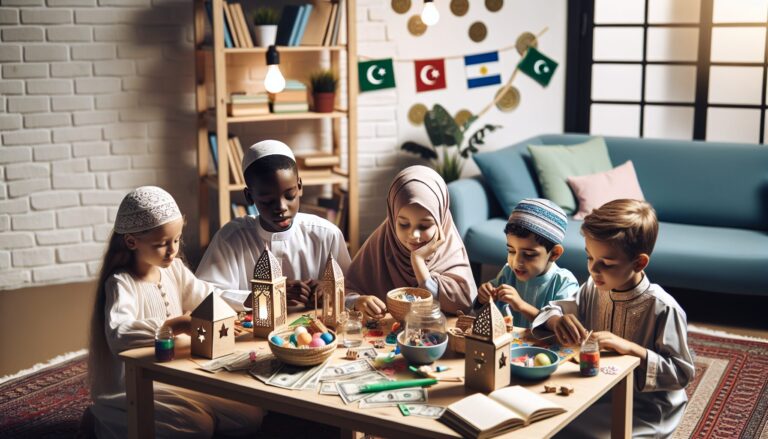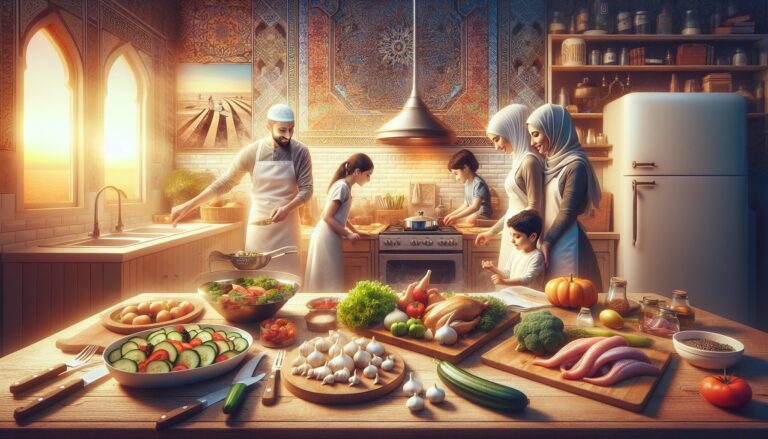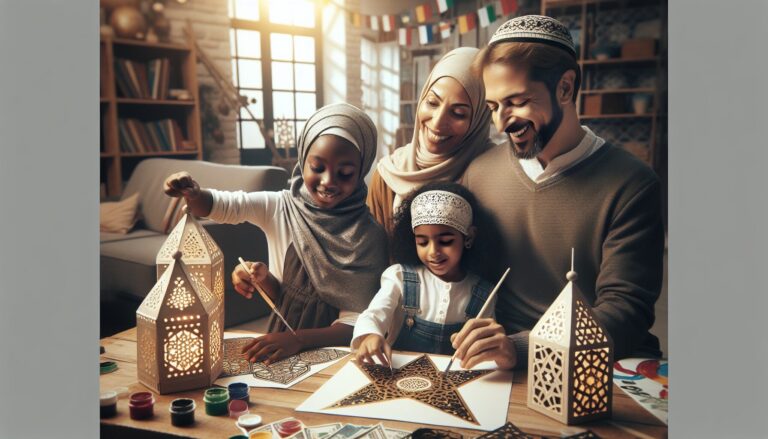On my first trip to New Zealand, I was fascinated by the diverse cultures around me. I had the wonderful opportunity to celebrate Eid al-Fitr with a friend’s family, which left a lasting impression. For those planning Islamic holiday events in 2025, knowing the key dates is crucial, as these holidays follow the lunar calendar and shift annually. In 2025, Ramadan, a month dedicated to fasting and reflection, is expected to begin around March 1st, concluding with Eid al-Fitr around March 30th. Eid al-Adha, the “Festival of Sacrifice,” is likely to occur around June 6th. These holidays involve communal prayers, feasting, and charitable acts, offering vibrant cultural experiences that unify communities. Ramadan emphasizes spiritual growth and self-control, Eid al-Fitr celebrates the end of fasting with meals and gifts, and Eid al-Adha honors Ibrahim’s devotion. Whether you’re new to these traditions or experienced, understanding them helps create meaningful, community-focused events.
⚠️ A Note to Event Planners
When planning Islamic holiday events, ensure compliance with local health and safety regulations to prevent overcrowding and potential hazards. Additionally, be mindful of cultural sensitivities and religious practices to foster an inclusive and respectful environment for all participants.
Setting a Budget for Your Event
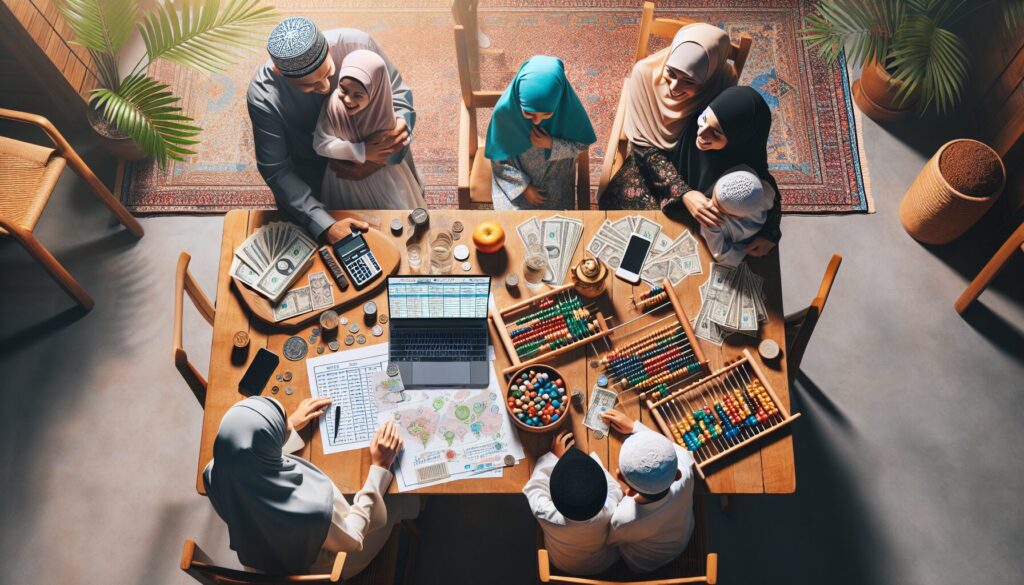
Setting a budget for your event is a bit like planning a road trip. You need to know where you’re going, how you’ll get there, and the costs involved. When it comes to planning Islamic holiday events in 2025, it’s essential to have a clear financial roadmap to ensure everything goes smoothly.
First, consider the scale of your event. Are you hosting a small gathering with family and friends, or are you organizing a community-wide celebration? This decision will significantly impact your budget. Larger events often require more resources, such as venue rentals, catering, and decorations. On the other hand, smaller gatherings might focus more on personal touches and homemade dishes. A friend of mine who organized an Eid al-Fitr gathering last year found that working with local vendors like New Zealand Event Planners helped manage costs effectively, and from my own experience planning large family events, I can confirm that getting local quotes early is a key to staying on budget.
Break Down Your Costs
Creating a detailed list of potential expenses is the next step. Here’s a handy checklist to get you started:
- Venue: Consider community centers, local mosques, or even your home for smaller gatherings. Each option has different costs and capacities.
- Catering: Whether you’re hiring a caterer or cooking yourself, food can be a major expense. Look into local businesses like New Zealand Catering Services for competitive pricing.
- Decorations: These can range from simple to extravagant. Opt for reusable items to save money in the long run.
- Entertainment: Music, games, or guest speakers can add to the celebration. Consider local talent or community members who might offer their services at a reduced rate.
Once you have an estimated total, it’s time to prioritize. Allocate more funds to areas that matter most to your vision. If having a variety of delicious foods is crucial, you might spend less on decorations. Alternatively, if ambiance is key, you could find ways to economize on other aspects.
Don’t forget to set aside a contingency fund. Unexpected expenses can pop up, like last-minute guests or additional supplies. A buffer of about 10% of your budget can help keep stress levels down. Additionally, keep a close eye on early bookings and discounts. Many venues and service providers offer special rates for bookings made well in advance, which can be a game-changer.
Involve your community. Reach out to local organizations like Islamic Federation of New Zealand for support or sponsorship opportunities. They might have resources or connections that can help alleviate some financial burdens. Collaboration and community spirit often bring unexpected rewards, making your event more memorable.
Choosing the Right Venue for Your Celebration
When it comes to making your Islamic holiday event unforgettable in 2025, choosing the right venue is key. I remember attending a delightful Eid gathering at a community center in Auckland during one of my visits, where the space was transformed into a vibrant, festive hub. Everyone felt welcome and comfortable, which is exactly what you want for your celebration.
So, how do you find that perfect spot in New Zealand? First, consider the size of your guest list. Are you inviting just close family and friends, or is it going to be a grand community event? This will determine the scale of the venue you need. Community centers or halls often work well because they can accommodate larger groups, and many have kitchens or catering facilities. Places like the Islamic Federation of New Zealand can often offer suggestions or even their own spaces.
Next, think about the location. You want a venue that’s accessible for all your guests. If you have attendees coming from various parts of the city or even from different towns, a central location is ideal. Also, consider the availability of parking or public transport options. It’s always a good idea to ensure there’s adequate space for prayer, so venues with multipurpose rooms or open spaces can be beneficial.
Consider the Atmosphere and Amenities
The atmosphere of the venue sets the tone for your event. Some places have beautiful outdoor gardens, perfect for a spring Eid al-Fitr celebration. Others may have cozy indoor spaces that are ideal for a winter Eid al-Adha gathering. You might want to decorate the space with some creative ideas from our article on Islamic holiday crafts for families in New Zealand to add a personal touch.
Don’t forget to check the amenities offered. Does the venue provide tables, chairs, and sound systems? How about a kitchen for your catering needs? Ensure all these elements align with your planning goals for your Islamic holiday events in 2025.
Consider the budget. While it’s tempting to go for the most luxurious option, remember that a venue should be a backdrop to your celebration, not the focal point. Sometimes, a simple, well-decorated hall can create the warmest, most inviting atmosphere. Reach out to local organizations like the Islamic Federation of New Zealand or community boards for recommendations and possible discounts.
Choosing the right venue is all about balance. Think about your guests, the atmosphere, and practicalities. With the right choice, your event will be both memorable and meaningful.
Incorporating Traditional and Modern Elements
Bringing together the beauty of tradition with the sparkle of modern innovation can make your Islamic holiday celebrations truly special. Imagine the joy of blending the timeless customs you’ve cherished with the exciting new trends that keep your gatherings fresh and vibrant. It’s like creating a perfect recipe by using your grandmother’s secret ingredient and adding a new twist to it—a delightful harmony of old and new.
To plan Islamic holiday events in 2025 with flair, consider these exciting ways to incorporate both traditional and modern elements:
Mixing Tradition with Trendiness
Start by honoring the essence of the holidays with traditional decorations. Lanterns, crescent moons, and stars can adorn your spaces, bringing that warm, familiar vibe. However, you can give them a modern touch by incorporating LED lights for a twinkling effect. A few years ago, I tried this at my own Eid gathering, and it was magical to see how the children’s faces lit up with delight!
When it comes to food, traditional dishes are a must. Yet, why not surprise your guests with a modern twist? Infuse classic recipes with contemporary flavors or presentation styles. For instance, serve traditional lamb kebabs with a side of fusion dips like avocado hummus. The mix of flavors can be a delightful conversation starter.
Additionally, music plays a key role in setting the mood. Traditional nasheeds can be beautifully complemented with modern instrumental backdrops. This creates a soothing yet lively atmosphere for everyone to enjoy. The Islamic Federation of New Zealand often showcases such innovative mixes during their events in Auckland, and they set a wonderful example of how to do it right.
Consider engaging your guests with interactive digital experiences. Virtual reality tours of historic Islamic sites or augmented reality games for kids can blend education with entertainment. A friend of mine recently used a VR setup to show the Kaaba to her guests, and it was a hit!
Think about sustainability. This modern concern fits perfectly with the traditional value of stewardship of the Earth. Use eco-friendly decorations and encourage guests to bring reusable containers for leftovers. Organizations like Auckland Council provide resources on how to host sustainable events, which can be incredibly helpful.
By thoughtfully blending the cherished customs of the past with the innovations of today, you can create a memorable and meaningful celebration. Embrace both worlds, and watch your Islamic holiday events come alive in new, exciting ways.
Tips for Catering and Menu Planning
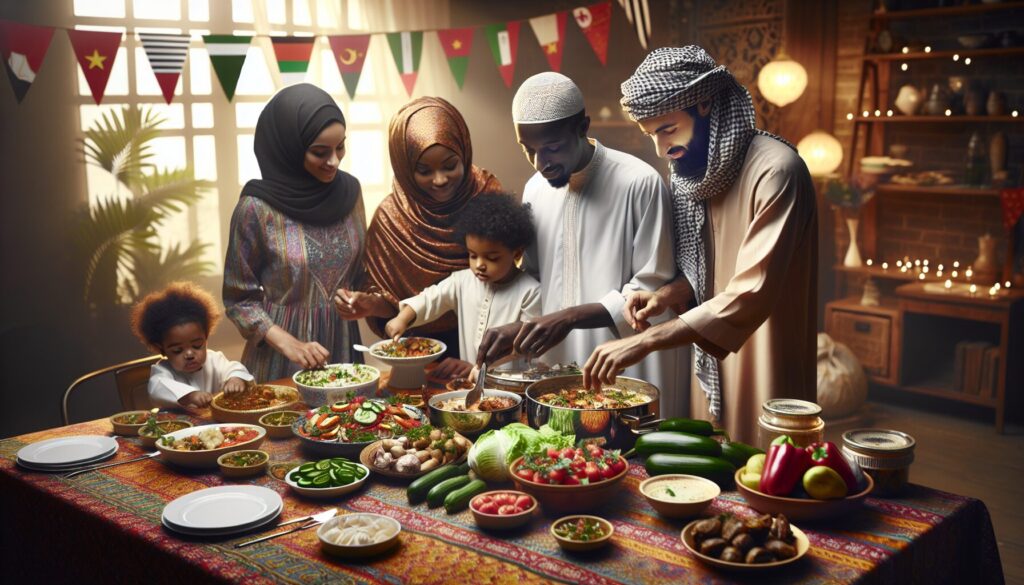
When planning catering for Islamic holiday events in 2025, it’s crucial to create a menu that delights everyone while respecting dietary guidelines. Start by considering the diverse audience and their preferences. In New Zealand, it’s pretty common to have a mix of traditional and modern dishes, so why not embrace both?
First, ensure that all food is halal-certified. This means checking that meat is sourced from halal butchers and verifying any processed ingredients. Many local businesses like Auckland Halal Butchery can help you with sourcing. Additionally, consider vegetarian and vegan options. Dishes like falafel, hummus, and tabbouleh are great choices that cater to these preferences.
Creating a Balanced Menu
It’s essential to balance heavier dishes with lighter options. For instance, alongside a rich lamb biryani, you might offer a fresh cucumber and yogurt salad. This not only provides variety, but also ensures guests have lighter options. Don’t forget to offer a range of beverages, including traditional drinks like rose water lemonade.
Here’s a handy list of tips for crafting your menu:
- Consult with local community leaders or organizations like Islamic Federation of New Zealand for menu inspiration.
- Include a mix of sweet and savory dishes to cater to different taste preferences.
- Ensure there’s plenty of water and non-caffeinated drinks, especially since many guests might be avoiding caffeine.
- Label all dishes clearly, indicating any potential allergens or dietary information.
Working with caterers familiar with halal cuisine is a game-changer. Many caterers in Auckland offer customizable menu options. Discuss your vision and ask if they can incorporate local ingredients. It adds a unique Kiwi twist to the traditional dishes, making the event even more special. Think about using seasonal produce from local markets, which not only supports community businesses but also ensures the freshest ingredients.
Remember, food is a central part of any celebration. It’s not just about sustenance; it’s about bringing people together, sharing culture, and creating memories. By putting thought into your catering plans, you’ll ensure that everyone leaves with a satisfied belly and a happy heart. And isn’t that what celebrating is all about?
Ensuring Inclusivity and Accessibility
When planning Islamic holiday events in 2025, ensuring inclusivity and accessibility is key to creating a welcoming atmosphere for everyone. Consider the diversity of attendees, which might include families with children, individuals with disabilities, and non-Muslims who are curious and excited to join the celebration. Here’s how you can make your event as inclusive as possible.
Firstly, ensure that the venue is physically accessible. This means checking for ramps, elevators, and accessible restrooms to accommodate those with mobility challenges. An accessible venue allows everyone, regardless of physical ability, to participate fully. It’s also a good idea to have clear signage and volunteers available to assist attendees who might need a bit of extra help navigating the space.
Next, think about dietary needs. While halal food will be a given, consider offering a variety of options to cater to different tastes and preferences. Include vegetarian and vegan dishes alongside traditional favorites. It’s not just about food, though—provide non-alcoholic beverages to ensure everyone has something refreshing to enjoy. A well-rounded menu can make a big difference in how included your guests feel.
Creating an Inclusive Atmosphere
Develop activities that engage both adults and kids. While adults might enjoy a thought-provoking lecture or a cultural workshop, children might prefer something more hands-on, like arts and crafts. This variety ensures that there’s something for everyone. Additionally, if you’re planning to include any speeches or performances, consider providing sign language interpreters or translations for those who are hearing impaired or non-native speakers.
Additionally, timing is crucial. Be mindful of prayer times and schedule breaks for attendees to observe them comfortably. Providing a quiet, clean space for prayer shows respect and consideration for attendees’ religious practices. You might coordinate with local mosques or Islamic centers like the Islamic Federation of New Zealand to ensure your timings align with their schedules.
Promote your event through various channels. Use social media, community bulletin boards, and local newspapers to reach a broad audience. Collaborate with organizations like Auckland Council and Auckland Halal Butchery to spread the word. This not only increases awareness but also signals to diverse groups that they are genuinely welcome.
By being thoughtful and proactive about these aspects, you’re not just planning an event; you’re creating a space where everyone feels valued and included.
Conclusion
To sum up, planning Islamic holiday events in 2025 involves a thoughtful blend of tradition, modernity, and inclusivity. By understanding key dates, setting a budget, choosing the right venue, and incorporating both traditional and modern elements, you can create a memorable celebration that resonates with all attendees. Prioritizing inclusivity and accessibility ensures that everyone feels welcome and valued, fostering a sense of community and shared joy. Embrace these insights to host an event that leaves lasting memories and strengthens bonds within your community. Wishing you a joyful and successful celebration!
Continue Exploring
Unlock the secrets to enriching your family bonds with traditions that stand the test of time. Dive into the fascinating science that makes these rituals so important and start creating memories that last forever.
Frequently Asked Questions
What are the key Islamic holidays in 2025 that I should consider when planning an event?
In 2025, the key Islamic holidays to consider are Ramadan, which is expected to start around March 1st and end with Eid al-Fitr around March 30th, and Eid al-Adha, which will likely fall around June 6th. These holidays are significant for communal prayers, feasting, and giving to charity.
How can I ensure my Islamic holiday event is inclusive and accessible?
To ensure inclusivity and accessibility, choose a venue with ramps, elevators, and accessible restrooms. Offer a variety of halal, vegetarian, and vegan menu options. Consider activities for both adults and children, and schedule breaks for prayer times. Additionally, promote the event through diverse channels to reach a broad audience.
What are some tips for blending traditional and modern elements in an Islamic holiday event?
To blend traditional and modern elements, use traditional decorations like lanterns with modern LED lights, serve classic dishes with a contemporary twist, and incorporate traditional nasheeds with modern instrumental backdrops. Consider sustainable practices and engage guests with digital experiences, such as virtual reality tours of historic Islamic sites.
Fatima Ansari is an Islamic educator and writer with over a decade of experience teaching Quran and Islamic studies to children and families in Western Muslim communities. Growing up in North America, she saw firsthand the challenges Muslim families face in balancing faith with modern life, which inspired her to share practical guidance rooted in the Quran and Sunnah. Her mission with E-Quran Learning is to make Islamic education accessible, relatable, and inspiring for Muslim families across the United States, United Kingdom, Canada, Australia, and New Zealand.
